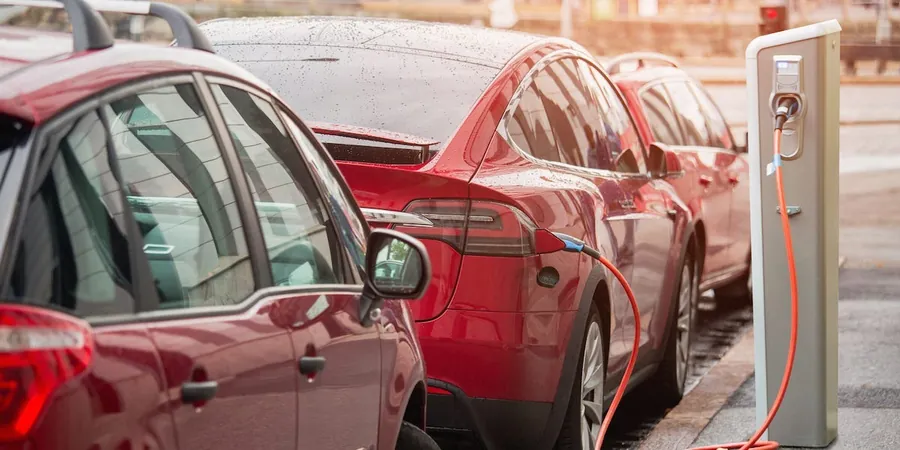
Automakers Urge for a Miracle as They Face Tough EV Transition Ahead – Could Trump Be the Key?
2024-12-06
Author: Jessica Wong
Introduction
In the wake of the rapidly shifting electric vehicle (EV) landscape, major automakers are sounding alarms about their ability to meet ambitious state mandates for EV sales. As the automotive industry grapples with slowing demand, job reductions, and fierce competition from China, executives are looking towards the incoming Trump administration for possible relief from stringent regulations.
Concerns from Major Automakers
Key players in the auto world, including Nissan and Toyota, have voiced concerns that the accelerated timelines for phasing out gas-powered vehicles set by several states—including California and New York—are unrealistic. These states aim for at least 35% of new car sales to be electric by 2026, with a complete transition anticipated by 2035.
“It would take a miracle to achieve these targets,” remarked Jérémie Papin, senior vice president of Nissan. Currently, EVs represent approximately 9% of new car sales in the United States—an all-time high but still far behind the targets set by regulators.
Industry Challenges
The industry has been hit hard this year, with many automakers dialing back production in response to sluggish demand. This downturn has prompted job cuts amidst ongoing billions invested in transitioning to EV technology. However, as competition from Chinese companies escalates in the production of affordable electric vehicles, keeping pace with innovation remains critical for these manufacturers.
Looking to Trump's Administration for Relief
With Trump’s return to the political forefront, auto executives are strategizing on how to leverage his administration to ease state mandates they find too stringent. During the campaign trail, Trump made it clear that he would oppose state bans on gas cars and sought to revoke California’s unique authority to impose stricter emissions standards than those at the federal level.
Under the Biden administration, California regained this authority, which has sparked ongoing legal battles that could eventually escalate to the Supreme Court. To mitigate potential disruptions from these regulatory shifts, prominent automakers, including BMW, Ford, Honda, and Volkswagen, entered into a 2020 agreement to adhere to California's stricter rules.
Market Realities and Consumer Demand
While federal regulations set by the Biden administration aim for a more flexible approach to cutting greenhouse gas emissions, some in the industry believe that these measures still fail to acknowledge market realities. Dealers across the country have reported an oversupply of unpopular EV models that customers are not eager to buy, stating that many consumers are not yet ready to transition to electric vehicles.
In Pennsylvania, Chrysler-Dodge-Jeep-Ram dealer Dave Kelleher lamented, "A majority of customers are simply not ready to go electric right now." He expressed hopes that a new administration might alleviate some of the mounting pressure from regulatory fines.
Auto Industry Advocacy
Karoline Leavitt, a spokeswoman with Trump's transition team, reaffirmed the stance that the former president would support a dual approach that respects both gasoline-powered and electric vehicles. John Bozella, president of the Alliance for Automotive Innovation which represents virtually all major automakers, has reached out to Trump seeking leniency on emissions regulations while advocating for the preservation of EV tax incentives that could enhance domestic investment.
Investment Trends and Manufacturer Positions
Investment in EV and battery production surged following Biden's election, with a recent analysis revealing over $312 billion pledged by companies since 2021. Toyota has even called for an end to both EV mandates and subsidies, claiming they distort the market and limit consumer choices.
While General Motors had initially aligned with Trump during his opposition to California's EV regulations, it retreated from the fray after Biden's win. The company's executives today emphasize the need for consistency across federal and state regulations, showcasing the ongoing complexities that automakers must navigate in this evolving marketplace.
Conclusion
As uncertainties loom over the future of EV regulations, the automotive industry finds itself at a crossroads: adapt quickly to new market demands and regulatory challenges or risk being left behind in an increasingly competitive landscape dominated by global players.


 Brasil (PT)
Brasil (PT)
 Canada (EN)
Canada (EN)
 Chile (ES)
Chile (ES)
 España (ES)
España (ES)
 France (FR)
France (FR)
 Hong Kong (EN)
Hong Kong (EN)
 Italia (IT)
Italia (IT)
 日本 (JA)
日本 (JA)
 Magyarország (HU)
Magyarország (HU)
 Norge (NO)
Norge (NO)
 Polska (PL)
Polska (PL)
 Schweiz (DE)
Schweiz (DE)
 Singapore (EN)
Singapore (EN)
 Sverige (SV)
Sverige (SV)
 Suomi (FI)
Suomi (FI)
 Türkiye (TR)
Türkiye (TR)